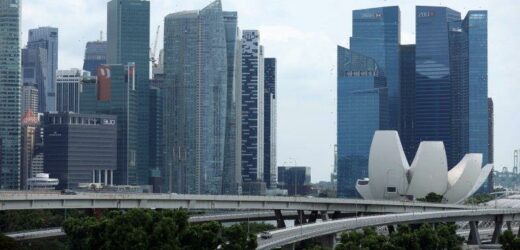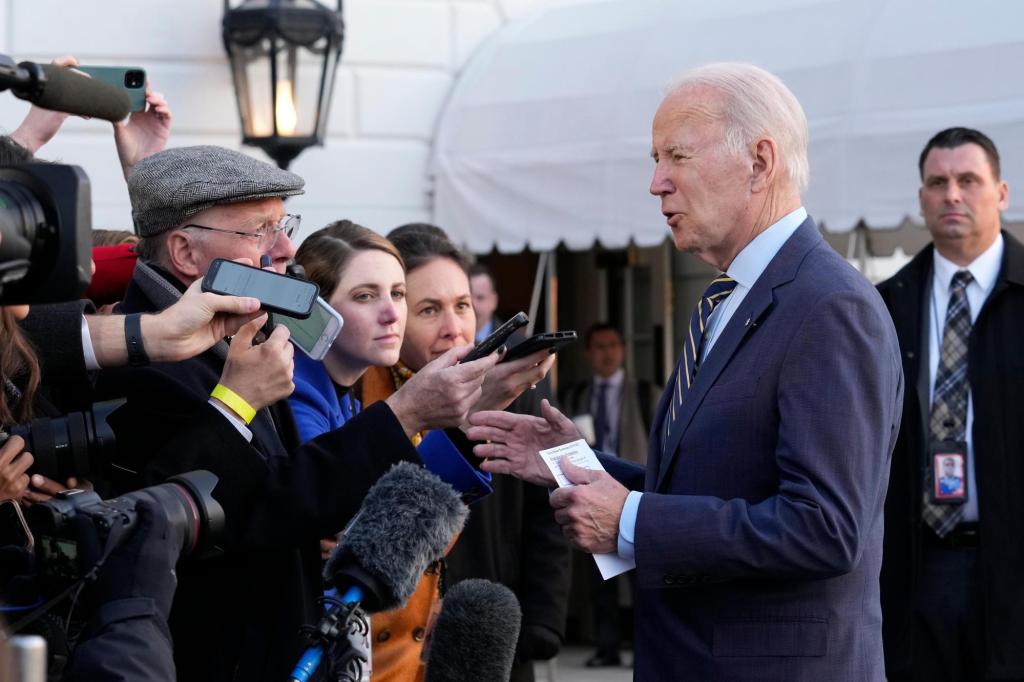Singapore: Singapore has been quick to point out it has plenty of options to achieve its renewable energy goals, following the collapse of Sun Cable, the $30 billion Australian solar megaproject that’s slumped into administration.
Sun Cable has ambitions to supply as much as 15 per cent of Singapore’s energy via the Australia-Asia PowerLink, an undersea cable from the Northern Territory. It has also signed a deal with Indonesia, through whose waters the 4200-kilometre wire would largely be laid.
Singapore, however, has received more than 20 bids from around the region for a contract to supply the city-state with low-carbon electricity, its government said, adding it will achieve its goals.
Singapore has limited scope to produce its own solar power and is looking abroad for help with its transition to net-zero.Credit:Bloomberg
Sun Cable is on shaky ground after being entered into voluntary administration amid a stand-off between its billionaire backers Mike Cannon-Brookes and Andrew Forrest.
The news could present a setback for the island’s long-term clean energy plans, but a spokesperson for Singapore’s industry regular, the Energy Market Authority (EMA), said the government agency was unable to comment on the company falling into administration but was assessing the merits of almost two dozen would-be renewable electricity providers.
“Besides the Sun Cable proposal, EMA has received more than 20 proposals to import electricity from countries including Indonesia, Laos, Malaysia and Thailand,” the spokesperson said.
Billionaires Mike Cannon-Brookes and Andrew Forrest are not on the same page as investors in Sun Cable.
Singapore has limited scope to produce its own solar power and is looking beyond its border for solutions, aiming for 30 per cent of its energy needs to come from abroad by midway through the next decade as part of its efforts to reach net-zero emissions by 2050.
“We remain on track to meet our imports target of four gigawatts [of low-carbon electricity] by 2035,” the EMA spokesperson said, adding that discussions with other potential foreign suppliers were continuing.
Sun Cable is still to gain approval from the regulator in Singapore but has said it has received expressions of interest from its private sector totalling 2.5GW, indicating demand well exceeding its plan to transmit 1.75GW via cable from a giant solar and battery farm in Australia.
While the geographically tiny south-east Asian nation has alternatives – most feasibly through importing hydropower from Laos via Thailand and Malaysia, and solar energy from Indonesia’s nearby Riau Islands – Sun Cable holds much appeal, according to Dr Philip Andrews-Speed, senior principal research fellow at the National University of Singapore’s Energy Studies Institute.
“This is one of the many strings to their clean energy bow,” he said.
“Singapore will need to import renewable energy and the nice thing about Sun Cable I think, from a Singaporean point of view, is it’s a large project, it’s from a [part of a] country that doesn’t have much demand and Australia is a politically reliable partner. So that makes the project, in principle, of interest, although its credibility has taken a knock.”
Sun Cable’s planned $30 billion-plus Australia-Asia PowerLink project.
Andrews-Speed said there was a lot of scepticism in Singapore about whether the Australia-Asia PowerLink would ever materialise but the firm’s troubles sent his mind back to another landmark, privately financed project.
“It reminds of the Channel Tunnel between Britain and France,” he said. “The first idea to do it was 1802 and it was only opened in 1994.
“A lot of people in Singapore [have] said ‘it’ll never happen’. My opinion [has been] ‘I’m not an engineer, but if the engineers put their minds to it, it’s expensive, but it will happen’.
“Really ambitious infrastructure projects go through these difficult times. So I don’t think it’s all over [but] clearly it will be delayed.”
The impact of Sun Cable’s woes may also be felt in Indonesia. Two months ago the company announced a deal with the government in Jakarta to develop plans for an inter-island electricity grid that it said could help unlock $US115 billion ($166 billion) of green energy.
Sun Cable chief executive David Griffin was also among the delegation of business leaders from Australia who accompanied Prime Minister Anthony Albanese to Indonesia in June just two weeks after Labor won the federal election.
Get a note directly from our foreign correspondents on what’s making headlines around the world. Sign up for the weekly What in the World newsletter here.
Most Viewed in World
From our partners
Source: Read Full Article





